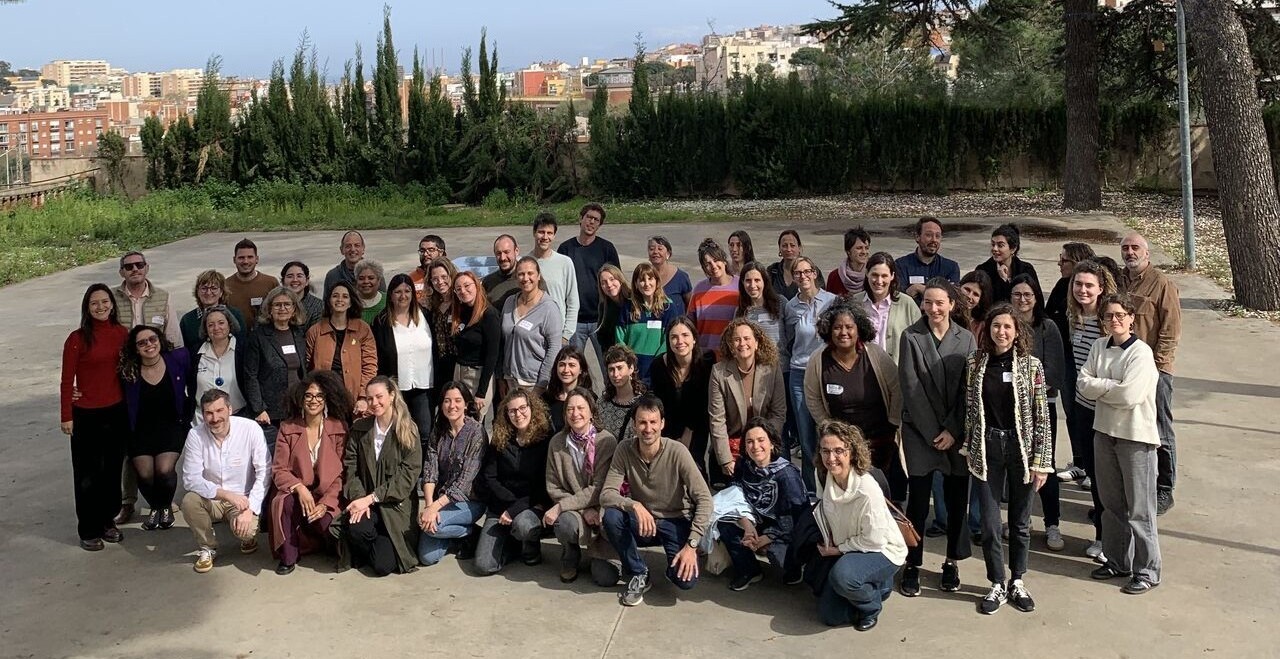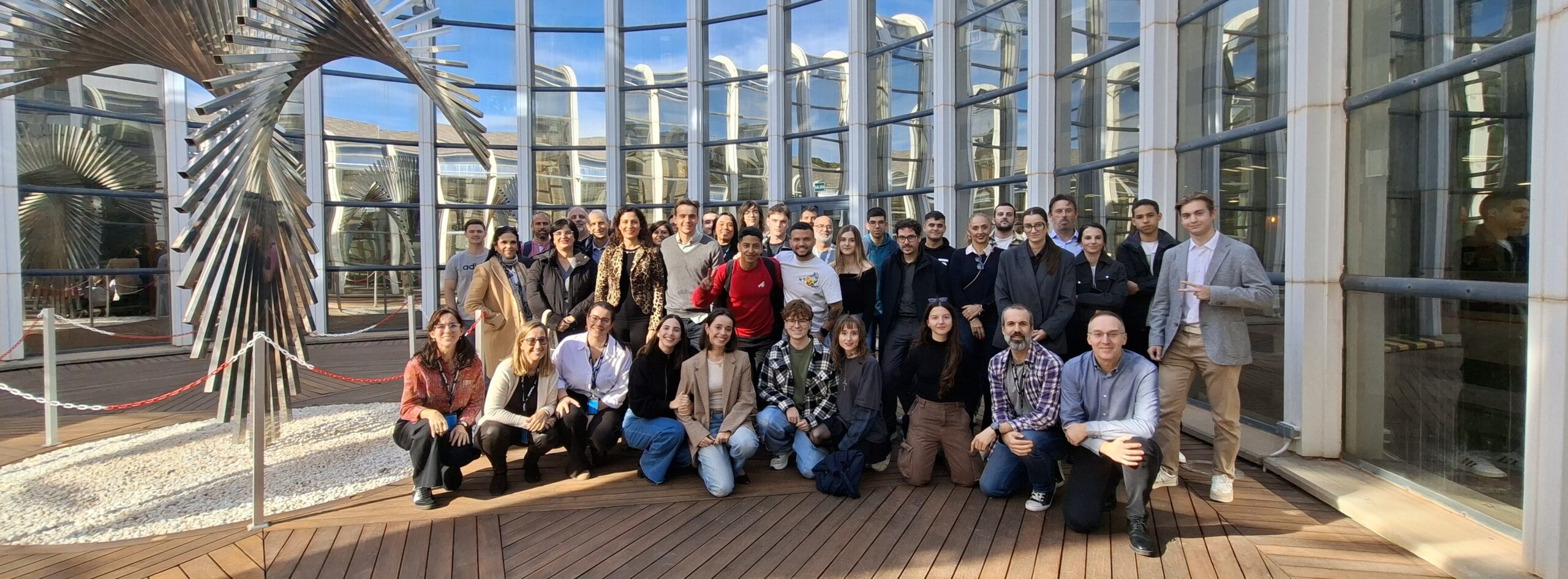
- Claudio Sáez Avaria, Professor of Marine Sciences and Applied Biology at the University of Alicante, has been recognised for his work to develop tools that can be transferred for use in industry, and for promoting conservation policies.
- The panel of judges of this edition of the award highlighted his pivotal work in marine conservation and his scientific and collaborative leadership in the drive to improve the sustainable management of marine ecosystems.
- Josep Oliu, chairman of Banco Sabadell and of its Foundation, will deliver the award on 21 October at the ADDA auditorium in Alicante, at a ceremony that will bring together authorities and prominent figures from the economic, business and scientific fields.
Professor of Marine Sciences and Applied Biology at the University of Alicante, Claudio Sáez Avaria, has been recognised with the 4th Banco Sabadell Foundation Award for Marine Sustainability for his research work on the development of environmental biotechnology tools to detect and monitor marine pollution.
This year’s panel of judges, chaired by Isabel Cacho, professor at the University of Barcelona, highlighted Sáez Avaria’s work which she described as “brilliant” and key to the development of marine conservation as it has “enabled the establishment of mechanisms to measure tolerance to metal pollution, desalination brines and stress factors associated with climate change”. She also underlined his “impressive scientific leadership” and “the award winner’s involvement in the development of transferable tools and collaborative projects with different industrial sectors in relation to the use of biomarkers to discriminate impacts, as well as his contribution to promoting legislation on conservation”.
His work has been key to the identification and validation of biomarkers and functional indicators applicable to the early detection and monitoring of environmental impacts. These contributions, which have received international recognition, are an essential reference in the understanding of resilience processes in temperate and polar ecosystems, in addition to encouraging knowledge transfer to industry and the formulation of marine conservation policies.
“Our goal is to understand organisms’ tolerance thresholds and defence mechanisms in response to pollution and climate change. These biological responses, which are translated into biomarkers and functional indicators, enable early detection and monitoring of impacts. Through this work, we seek to provide scientific evidence to promote sustainable marine development in ecosystems in regions ranging from temperate to polar”, explains the award winner.
Josep Oliu, chairman of Banco Sabadell and of its Foundation, will deliver the award on 21 October at the ADDA auditorium in Alicante, at a ceremony that will bring together authorities and prominent figures from the economic, business and scientific fields. The award ceremony will also formally present the 3rd Banco Sabadell Foundation Award for Marine Sustainability to Óscar Serrano, researcher at the Centro de Estudios Avanzados de Blanes (CEAB-CSIC), who was chosen to receive the award in 2024 for his work on the protection and restoration of habitats containing blue carbon, an essential component in climate change mitigation.
Oliu highlighted the importance of this award which “recognises the achievements of scientists working in sustainability and marine environment conservation” and he stressed the need to keep creating initiatives that promote and showcase “the brilliant work of scientists who develop tools to preserve biodiversity and mitigate climate change.”
This award forms part of the commitment undertaken by the Banco Sabadell Foundation to recognise talent among researchers and to showcase how their lines of research can influence progress and people’s wellbeing, along with its other research awards, specifically those for Biomedical Research, Science and Engineering, and Economic Research.
A career focused on environmental biotechnology and the early detection of threats to marine ecosystems
Sáez Avaria studied Environmental Engineering at the University of Valparaíso (Chile) and at Victoria University of Wellington (New Zealand), and went on to obtain a PhD in Marine Sciences at the University of Plymouth (United Kingdom). He began his academic career in Chile, where he founded the Laboratory of Aquatic Environmental Research (LACER) at the University of Playa Ancha (UPLA), and he managed the creation of the UPLA ENVIRONMENTAL HUB, a national and international centre of excellence in environmental sciences. Since 2021, he has continued his work at the University of Alicante, where he is currently a tenured Professor in the Department of Marine Sciences and Applied Biology.
His research has been published in more than 60 articles in high-impact JCR-indexed journals and focuses on the development of biomarkers and functional indicators for the early detection and monitoring of marine pollution, as well as exploring and understanding climate change resilience processes. He has led competitive international projects with funding exceeding 5 million euros, including a European initiative under the Marie Skłodowska-Curie Institute, and he has coordinated scientific expeditions to the Antarctic. He currently forms part of the editorial committee of leading journals such as BMC Plant Biology and Frontiers in Marine Science, and he works collaboratively with institutions and companies involved in the field of marine sustainability.
Panel of judges of the 4th Banco Sabadell Foundation Award for Marine Sustainability
The panel of judges is chaired by Dr Isabel Cacho and formed by Dr Angel Borja, Dr Conxita Ávila, Dr Emilio Fernández, Dr Emma Cebrián, Dr Jorge Miguel Terrados, Dr José Luis Sánchez Lizaso, Dr Rafael Sardá and Dr Stefano Pogutz.
About the Banco Sabadell Foundation
The mission of the Banco Sabadell Foundation is to promote culture and the arts, research, and education. It was created in 1994 as an embodiment of Banco Sabadell’s commitment to the progress and wellbeing of people and with the aim of becoming a benchmark and an advocate for change and innovation, serving the general interest and social cohesion by acting as a driver of excellence, creativity and innovation, focusing particularly on promoting young talent.


